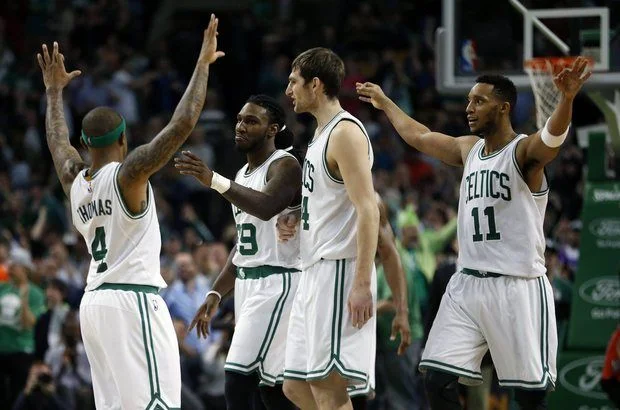Can the Celtics be good because they don't have any bad players?
The Celtics are in a unique place to start the season. They're not championship contenders and they're not exactly considered a powerhouse in the Eastern Conference, yet their fan base remains highly optimistic and certain preseason projections from credible sources have them up near 50 wins. Nylon Calculus, who has been historically accurate with their win projections, chalked the C's up to 49 wins and the three seed in the East.
So why are so many people looking at the Celtics as one of the NBA's biggest sleepers this year? In one word: depth. But it's more complex than that. SI.com's Ian Levy recently broke down why the Celtics have one of the stronger rosters in the NBA using a metric called Box Plus-Minus:
What the study finds is that the common theme for the best teams in the NBA the last few seasons is not an excess of great players, but an absence of bad ones. That's what the Celtics have this year. According to the Box Plus-Minus and FiveThirtyEight's preseason playing time projections, 84% of their minutes will be going to players who fall into the average or good categories.
It's no secret that Brad Stevens' biggest challenge throughout training camp has been figuring out a way to distribute minutes. As a coach, this can be a good problem to have and I'm sure Brad isn't complaining. Studies like this just reiterate why the Celtics' rotation is such a tough one to figure out.
When everyone on your team can play and they're all working their ass off to earn their minutes, it's hard to want to sit anyone.
Follow Jack Bardsley on Twitter @BostonsBigFour
Photo Credit: Michael Dwyer/AP via MassLive
So why are so many people looking at the Celtics as one of the NBA's biggest sleepers this year? In one word: depth. But it's more complex than that. SI.com's Ian Levy recently broke down why the Celtics have one of the stronger rosters in the NBA using a metric called Box Plus-Minus:
"Speaking more specifically, average can be reasonably defined using a metric like Box Plus-Minus — a box score derived estimate of a player’s net impact per 100 possessions. The stat is scaled such that 0.0 represents a baseline average. Looking at players from last season who finished with a Box Plus-Minus between -0.5 and +0.5 help illustrate the concept: These are your Andre Robersons and Wilson Chandlers; your Rodney Stuckeys and Miles Plumlees. They are shooters and defenders, rebounders and distributors. More importantly, they’re all both skilled and flawed in roughly equal measure."
What the study finds is that the common theme for the best teams in the NBA the last few seasons is not an excess of great players, but an absence of bad ones. That's what the Celtics have this year. According to the Box Plus-Minus and FiveThirtyEight's preseason playing time projections, 84% of their minutes will be going to players who fall into the average or good categories.
It's no secret that Brad Stevens' biggest challenge throughout training camp has been figuring out a way to distribute minutes. As a coach, this can be a good problem to have and I'm sure Brad isn't complaining. Studies like this just reiterate why the Celtics' rotation is such a tough one to figure out.
When everyone on your team can play and they're all working their ass off to earn their minutes, it's hard to want to sit anyone.
Follow Jack Bardsley on Twitter @BostonsBigFour
Photo Credit: Michael Dwyer/AP via MassLive




 alt="" data-uk-cover="" />
alt="" data-uk-cover="" />

















